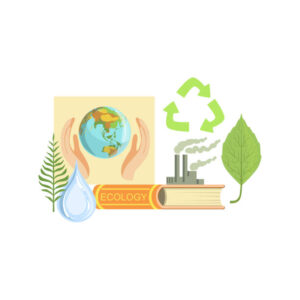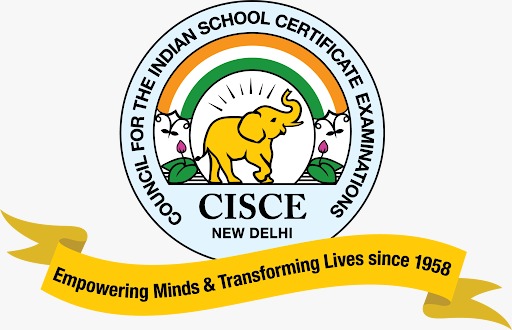The world as we know it today has been shaped by the incredible discoveries and inventions of brilliant scientists. From electricity to the internet, scientific advancements have transformed the way we live, work, and interact with our environment. In this blog, we will explore the lives and groundbreaking inventions of 10 famous scientists whose contributions have left an indelible mark on history. Just as Cambridge schools in Bangalore emphasize innovation and critical thinking, these scientists have paved the way for progress through their visionary ideas.
1. Isaac Newton: The Laws of Motion and Gravity
Sir Isaac Newton, often regarded as one of the greatest scientists of all time, is best known for formulating the Laws of Motion and the Law of Universal Gravitation. These principles form the foundation of classical mechanics. Newton’s work revolutionized our understanding of motion and the forces governing the universe.
Key Invention/Discovery:
Reflecting Telescope: Newton designed the first practical reflecting telescope, improving the way we observe celestial objects.
Impact: His discoveries laid the groundwork for modern physics and engineering, influencing scientific thought for centuries. Even today, students studying physics and mathematics use concepts rooted in Newtonian mechanics, much like how a trigonometry table helps in solving complex mathematical problems.
2. Albert Einstein: Theory of Relativity
Albert Einstein is synonymous with genius. His Theory of Relativity redefined our understanding of space, time, and energy. The famous equation, E=mc2E = mc^2E=mc2, demonstrated the relationship between mass and energy, a cornerstone of modern physics.
Key Invention/Discovery:
Photoelectric Effect: Einstein’s explanation of this phenomenon earned him the Nobel Prize in Physics in 1921 and was pivotal in the development of quantum mechanics.
Impact: His work has applications in GPS technology, nuclear energy, and cosmology.
3. Thomas Edison: The Light Bulb
Thomas Edison is celebrated for his practical inventions that made life easier. Among his 1,000+ patents, the most iconic is the electric light bulb, which revolutionized indoor lighting and extended human activity into the night.
Key Invention/Discovery:
Phonograph: Another notable invention, the phonograph, was the first device capable of recording and reproducing sound.
Impact: Edison’s contributions transformed industries like lighting, sound recording, and motion pictures.
4. Nikola Tesla: Alternating Current (AC)
Nikola Tesla, a visionary inventor, played a crucial role in the development of alternating current (AC) electrical systems, which are still used today to power homes and industries. Tesla’s innovative ideas often pushed the boundaries of possibility.
Key Invention/Discovery:
Tesla Coil: A high-frequency transformer still used in radio technology and wireless communication.
Impact: Tesla’s work made electricity safer, cheaper, and more efficient, driving the second industrial revolution.
5. Alexander Graham Bell: The Telephone
Alexander Graham Bell is best known for inventing the telephone, a device that revolutionized global communication. His invention made it possible for people to connect instantly across vast distances.
Key Invention/Discovery:
Audiometer: A device for measuring hearing ability, showcasing Bell’s interest in aiding those with hearing impairments.
Impact: Bell’s telephone laid the groundwork for the communication networks we rely on today.
6. Marie Curie: Radioactivity
Marie Curie was a pioneer in the study of radioactivity and the first woman to win a Nobel Prize—and the only person to win it in two different sciences (Physics and Chemistry). Her research led to groundbreaking advancements in medicine and physics.
Key Invention/Discovery:
Radium and Polonium: Curie discovered these radioactive elements, which have applications in cancer treatment.
Impact: Her work revolutionized medical imaging and radiation therapy, saving countless lives.
7. Galileo Galilei: The Telescope
Known as the “Father of Modern Science,” Galileo Galilei made significant contributions to astronomy, physics, and engineering. He improved the design of the telescope, enabling groundbreaking astronomical observations.
Key Invention/Discovery:
Galilean Moons: Galileo discovered Jupiter’s largest moons, proving that not all celestial bodies orbit Earth.
Impact: His work challenged traditional beliefs and laid the foundation for modern astronomy.
8. James Watt: The Steam Engine
James Watt’s improvements to the steam engine were instrumental in powering the Industrial Revolution. His work made steam engines more efficient and practical for use in industries and transportation.
Key Invention/Discovery:
Rotative Steam Engine: Enabled machines to work continuously, revolutionizing manufacturing processes.
Impact: Watt’s innovations transformed agriculture, mining, and transportation, driving economic growth globally.
9. Charles Darwin: Theory of Evolution
Charles Darwin’s Theory of Evolution by Natural Selection reshaped our understanding of life on Earth. His book, On the Origin of Species, provided evidence for the diversity of life and its adaptation to the environment.
Key Invention/Discovery:
Evolutionary Theory: Explained how species evolve over time through natural selection.
Impact: Darwin’s ideas remain central to biology, influencing genetics, ecology, and conservation efforts.
10. Wright Brothers: The Airplane
Orville and Wilbur Wright are credited with inventing and building the first successful airplane. Their groundbreaking flight in 1903 marked the beginning of modern aviation.
Key Invention/Discovery:
The Flyer: The first powered aircraft capable of sustained, controlled flight.
Impact: The Wright brothers’ invention revolutionized transportation, making global travel faster and more accessible.
Conclusion
The contributions of these 10 famous scientists have profoundly impacted humanity. Their inventions and discoveries paved the way for the technological and scientific advancements we enjoy today. Learning about their work not only highlights the power of human curiosity and determination but also serves as an inspiration for future innovators. Just as the best international schools in Kadugodi foster a culture of learning and exploration, these scientists remind us that with passion and perseverance, we too can achieve remarkable things.
FAQs
Learning about scientists and their inventions inspires innovation and helps us understand how their work shaped the modern world. It also provides insight into problem-solving and the pursuit of knowledge.
Common traits include curiosity, perseverance, creativity, and a deep passion for understanding the unknown. These qualities enabled them to overcome challenges and make groundbreaking discoveries.
These inventions laid the foundation for numerous technologies we use today. For example, Newton’s laws are essential in engineering, while Edison’s inventions power our homes and industries.








